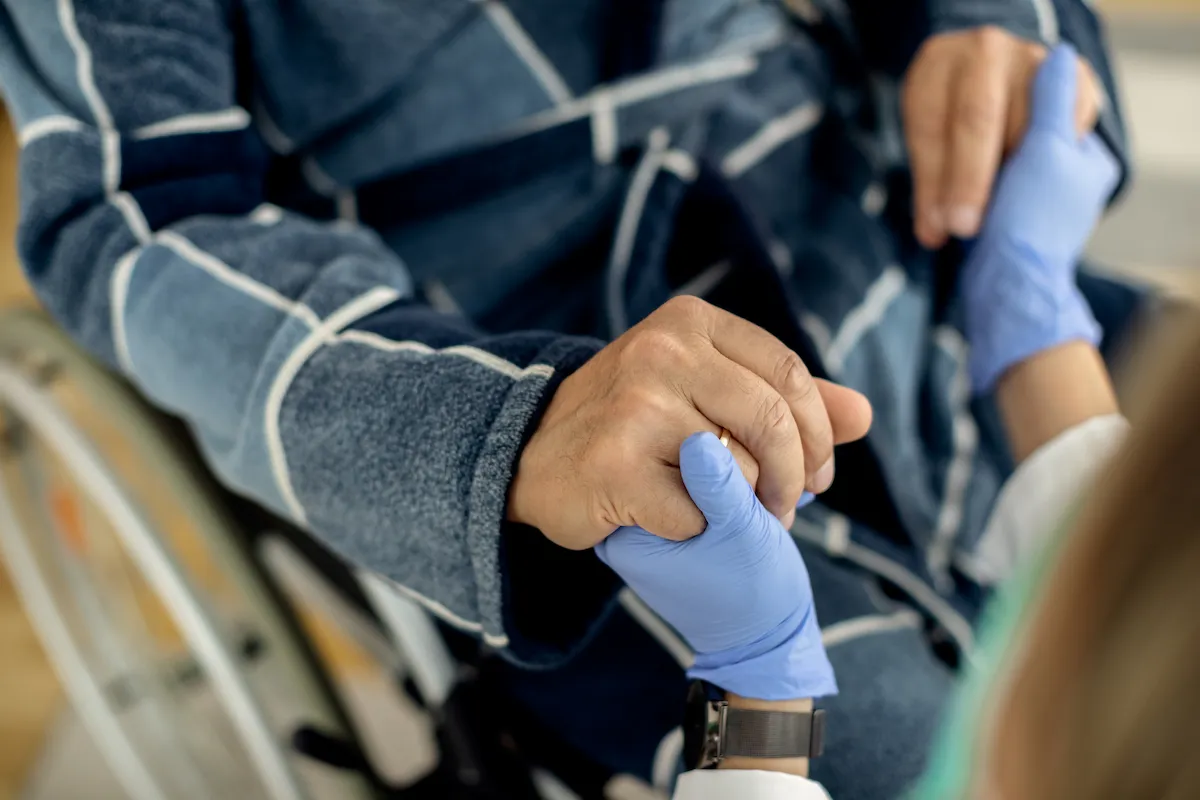Tourette syndrome can seem very strange to those who don’t know it or don’t understand it. On the occasion of Tourette Syndrome Awareness Day, which is celebrated on June 7, we bring you a few tips on how to treat people who have it.
These tips have been confirmed by the testimonies of the protagonists themselves; members of the Madrid Association of Tourette Syndrome and Associated Disorders (AMPASTTA). Many thanks to everyone from here!
What is Tourette syndrome?
Tourette syndrome is the most prominent tic-related disorder known. Tics can be movements (motor tics) or can be words or sounds (phonic tics). They are always involuntary and sudden, and are not aimed at any particular target, unlike voluntary movements or the voluntary production of words or sounds, which do have a purpose.
Although it is estimated that 90% of people with Tourette syndrome, in addition to tics, have other associated symptoms and/or disorders (such as attention deficit hyperactivity disorder–ADHD–, obsessive-compulsive disorder–OCD– and/or autism spectrum disorder –ASD–) and only 10% of people with Tourette have tics as their only symptom, in this article we will focus on tics because they are the main symptom used for diagnosis and are also the most visible.
12 tips to help a person affected by Tourette
Tourette syndrome can be a difficult topic to deal with for the person who has it and for those they interact with; however, as with any other disorder it is best not to ignore it, but to learn about it and treat it naturally.
If you ever come across someone with this disorder, but especially if you have a friend with Tourette (or a family member, coworker, or even just an acquaintance), it is important that you know what makes them feel comfortable and what does not. That is why we bring you 12 ways to support a person with Tourette syndrome.
1. Don’t stare at them when they have a tic
It may seem obvious, but some tics can be very striking because of their intensity (shouting, jumping, making mouth sounds, moving the limbs, etc.). No matter how striking or exaggerated they are, it is advisable to give them normality and act as if you don’t notice. Even if you feel curious, staring is very rude.
2. While conversing with them, try to pretend that Tourette-related tics aren’t there
Ignoring the tics, pretending they don’t bother you, or simply not reacting to them is the best thing you can do. If they realize that other people notice their tics, they will feel more stressed, which will cause an increase in their tics, which will upset them because they cannot control them and this will stress them even more, increasing their tics in a vicious circle.
Tics can always be a distraction, but they, like everyone else, will want to have normal conversations. If these are interrupted or end as soon as the tics begin, it may upset them, even if they try to hide it; especially if it happens frequently.
It always helps to put yourself in the other person’s shoes and in this case, it may be useful to think how difficult it would be for you if in all or almost all your conversations your own body interrupted you.
3. Be patient
If the person has any kind of tic that interrupts their speech, try to be patient and let them express themselves. We all can be annoyed when we are not allowed to finish a sentence, but especially if we sometimes have difficulty doing so.
4. Ask them about their tics, but approach the topic according to their own acceptance of them
We are all different and some people find it comfortable to talk about their difficulties and others do not. It is advisable that before asking about their tics, you listen to and observe them to know to what extent they are comfortable with it and to know if they handle it naturally or not.
Afterwards you can ask if they feel comfortable talking about it, and if they do, ask more questions. This will make them feel comfortable with you. But make sure to ask intelligent questions and not something like “Can’t you stop?” because they can’t; they simply do not have full control over their body.
Also consider when and how much it is appropriate to talk about it. It’s fine to ask questions but without turning it into the only or a too recurrent topic. If they feel they can trust you and talk openly with you, they will relax and that will even make them have fewer tics than usual.
5. Don’t try to change a person with Tourette
Something that makes us all feel loved is acceptance; especially if there is something about us that is difficult or perhaps impossible to change, we want to be loved as we are.
It is no different for someone with Tourette; on the contrary, it is especially important in their case, since he or she has no control over their tics and often feels bad about it. In general they often have unpleasant everyday experiences, since not everyone knows about Tourette syndrome and many people may interpret a phonic or motor tic as bad manners or rude behavior, or even as an attempt to annoy someone intentionally.
The best way to care for someone with Tourette is to love them as they are. If you try to help them, for example by asking if they have tried a particular remedy or suggesting some treatment you have read about, they may feel that you are confirming what they already think about themselves, that there is something unacceptable in them that you would like to change.
It is different if they are the one asking you for help, but it is better not to offer it until they ask you, as it may make them feel that you do not appreciate them as they are and they may feel somewhat hurt and distant. After all, we all look to our friends and loved ones to love us as we are.
6. Don’t point out their new tics
Some people appreciate that their close ones ask them if a tic is new or if they already did it before, but, as always, we are all different and there are people who may be bothered, especially if they do not have enough trust with the person who mentions it.
Most likely they were the first to notice the new tic and they are not exactly happy about its arrival. Pointing out a new tic can be the same as saying: “Hey look, you’re doing a new weird thing!” Instead of thanking you, they may be upset. Again, it’s about giving normality to whatever their symptoms are to make them feel comfortable.
7. Notice when their tics increase and offer subtle help
If you notice they are having something like a tic attack, then it may be that for some reason they are more nervous or anxious than usual.
This can happen because they are going through a period or moment of additional stress (for example, exams, or a week with more work) or because you are in a new place, or in public, or in situations where they feel observed and judged by strangers, or simply overstimulated.
In this context you can subtly offer them a way out of that stressful situation; subtlety is important here because otherwise your help could be counterproductive and make them more overexcited and have more tics.
Ways to help a person with Tourette when their tics increase
Try to get them to talk, but without it being obvious that it is because you noticed an increase in their tics. You can ask them as you would any other person you notice is distressed, without explicitly calling attention to Tourette: “Hey you seem a bit stressed, is something bothering you?”.
Suggest leaving the place (for example in a restaurant or a party) by saying, “I feel like getting some air, do you want to come?” or ask if they will accompany you to run an errand, like buying more drinks. Most people with Tourette syndrome report that fresh air or space helps them “reset” their brain.
Causing a slight change in their attention (asking them what time it is, asking them to reach you something or to change seats for some reason) is especially useful in situations where it is not possible to go outside (for example, in the elevator or the subway). They will probably realize why you do it, and even if they don’t tell you, they will appreciate the delicacy with which you help them.
8. Physical contact can be comforting for a person with Tourette
A hug comforts and calms by deactivating the sympathetic nervous system, and reduces anxiety. It is not necessary to hug them if the situation is not appropriate, as it may seem unjustified and even somewhat violent if they consider it out of place, but lighter physical contact also reduces stress.
Always taking into account the situation and their personal preferences, you might show support by gently squeezing their forearm or giving light pats on their shoulder.
A physical gesture of comfort is excellent, not only because it can help reduce nervousness by itself, but also because it is a way of telling them you are there for them without having to draw the attention of others present. It means you back them and know they are going through a difficult moment.
9. Don’t make jokes about Tourette
This is a delicate subject. Although humor often serves to defuse a complicated matter, whether it is appropriate to make jokes about Tourette with the person who has it will depend completely on them.
In general this tends to work better with adults than with children, as children are more vulnerable and can end up feeling hurt even if it is their own mother who makes jokes that are supposedly innocent and well intentioned. Nevertheless, it depends on the person.
It can also depend on the moment as it does for all of us. There will be days when they prefer that no jokes are made about their symptoms at all, and occasions when they themselves prefer to make the jokes (just as it is healthy for anyone to laugh at themselves from time to time) and for you to laugh. Naturally, a joke is more likely to have a negative effect the less trust there is with the person making the joke.
10. Don’t tell them they are being rude, or that they are putting on a show
Especially if the person with Tourette is a child, this is something that will undoubtedly affect them. Adults tend to react by getting angry or upset even if they don’t show it. Children, being more vulnerable, can even come to believe they are “bad”.
Many children with Tourette (if not most) go through very unpleasant experiences at school, not only with other children but especially with teachers, who, being completely unaware of the disorder, attribute the behavior of children with Tourette to bad manners or a problematic personality, because they interpret their tics and other symptoms as intentional behaviors.
Never tell a child with Tourette that they cause trouble by playing, that they are disobedient, naughty, a troublemaker, or that they are putting on a show, and believe them when they tell you they are not doing it on purpose.
11. Stand up for them
There will be those who intimidate them, mock or insult them, or even those who will reprimand them or want to expel them from an establishment for considering that they are being noisy or annoying. Support them and make them feel that you care. Any of these situations would make any of us feel terrible; defend them from those who cannot avoid it.
Even if you don’t manage to win the battle at that moment, you will have shown them that you are there to help when necessary.
12. And keep in mind…
That every day they face several battles: with their tics (they also distract and interrupt them in their activities), with societal acceptance (they would like to walk down the street without receiving strange looks or unpleasant and even cruel comments), with acceptance from family and friends (it is a great truth that if you have enough support at home, you will feel ready to face the world) and with self-acceptance (for which the most important thing is the support, respect and affection of family and friends, because without this they will find it hard to feel they deserve the love of their close ones).
Testimonies from members of the Madrid Association of Tourette Syndrome and Associated Disorders (AMPASTTA)
Below, we bring you a series of extracts from testimonies of AMPASTTA members. In their own words….
Juan José Gómez (43 years):
“My friends respect me and help me a lot. They treat situations normally.
My family is always there and worries, they are attentive… But the person affected by TS can realize that they are involving a lot of third parties with their problem and they can feel overwhelmed and their tics can worsen.
I think you have to accept what you have, try to cope as best as possible because people, even if they are aware, will still stare at you and you have to accept it, we need affection and help. When the person with TS asks you, you should talk to them and understand them in situations where they are upset or nervous.
I would like our neurological disorder to be better known by doctors and to be publicized through other media such as radio, press, television…
In summary I would say that more visibility should be given to this illness. Normalize it, and thus society would see that we are normal people and that the only thing we want is to be respected and treated equally.”
Gonzalo Ibáñez (8 years):
“I don’t like speaking in public because I think they will laugh at me. I would like them to believe me that I don’t do it on purpose.”
Sergio Silveira (10 years):
“On the street, it’s different. If I make noises, people look, but…..I can’t avoid it. I’m lucky, my classmates at school take care of me a lot and already consider it very normal. At first my teachers used to send me to the hallway because I wouldn’t stop making noises, and even though I told them I couldn’t control it, they didn’t believe me. But right now I don’t have a problem.”
Marcos Varas (9 years):
“It calms me a lot that the people I live with, my friends, my classmates… know what happens to me and don’t say anything because I have to put the red paint with the green or erase the A twice. It’s easier for children your age to understand you than adults, children don’t ask so many questions or look at you like you’re a Martian, my friends say ‘oh okay’ and that’s it.
What I would ask is that people do not laugh at others for doing something different, I don’t hurt anyone by doing my tics, but they do hurt me if they laugh at me because I feel awful and think I will never be capable of doing anything. The best thing is that whoever wants to be with me knowing how I am and that I do strange things should stay and whoever doesn’t, should leave, but at least don’t bother because I try not to bother anyone”.
Raúl Varas (13 years):
“When I think about what could be done to make me feel better it all comes down to one thing: that people accept me as I am, not always thinking they will laugh at me or look at me like a weirdo because I have tics or because certain things make me very nervous.
I feel much better when the people around me know what happens to me, I have no problem saying I have Tourette syndrome; I have told my class, my soccer team, my friends… well sometimes it is obvious that something is happening to me and I like to put a name to it, it’s called Tourette.
When people know, they stop asking you What are you doing? Or Why are you doing that? And they don’t laugh thinking you’re making a joke. Also I’ve noticed that when they know it’s as if I have the green light to do my tics and then fewer come out and I don’t have to go through an explosion of tics from holding them in.”.
References and acknowledgments
For the making of this article the following were involved:
The collaboration of the members of AMPASTTA (Madrid Association of Patients with Tourette Syndrome and Associated Disorders) through their written testimonies. Juan José Gómez (43 years), Gonzalo Ibáñez (8 years), Sergio Silveira 10 years, and Raúl and Marcos Varas (13 and 9 years).
The article “6 Ways to Support Your Friend with Tourette’s” written by Brittany Fichtery published on her blog about her first-hand experience with the syndrome.
The article published on wikiHow “How to understand a person with Tourette’s Syndrome”.
Finally, thanks to Brittany Fichter for her great article and special thanks to the AMPASTTA volunteers for their brave testimonies and to their president Mario Martín for his support and availability.
Happy European Tourette Syndrome Awareness Week!
If you liked this article about the Tourette syndrome, you might also be interested in other NeuronUP publications:
“This article has been translated. Link to the original article in Spanish:”
12 formas de ayudar a una persona con síndrome de Tourette







 5 exercises to improve memory
5 exercises to improve memory
Is there a support group for the parents that live everyday life with someone who never been diagnosed with Tourettes Syndrome. As a parent to an adult that struggles daily. Is there help for us?